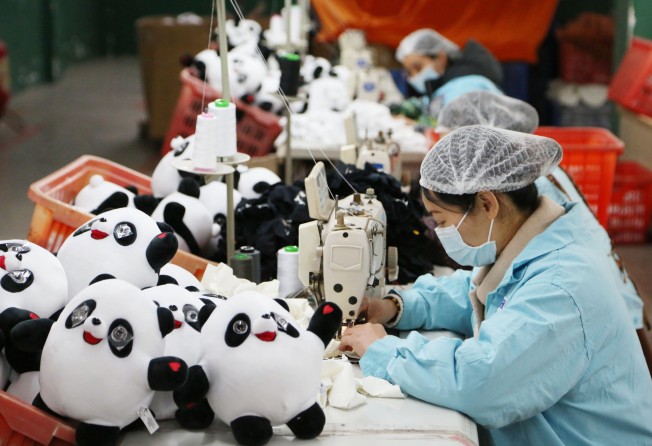
02:25
Xi Jinping and Joe Biden call for mutual respect and peaceful China-US coexistence

A fifth of the companies in China’s southern manufacturing hub suffered more than a 40 per cent reduction in production capacity at the height of an energy crisis last year, according to a new survey from the American Chamber of Commerce in South China.
Some 21 per cent of respondents say the crisis took away more than 40 per cent of their production capacity between October 8 and 12, while 25 per cent of respondents lost between 10 and 40 per cent of their production capacity during the same period.
The trade association conducted two separate surveys assessing the impact of the electricity crunch on its members last year.
The first survey was from October 8-12. The second survey – “2022 Special Report on the State of Business in South China” – covered the period between October 13 and December 15, and was part of AmCham’s annual assessment of economic outlook and business sentiment from its members.
A total of 251 companies took part, and results from 230 companies were used, AmCham South China said.
Production capacity recovered significantly by the time of the second survey: only 3 per cent of companies experienced more than a 40 per cent reduction in production capacity. Some 53 per cent of the companies had lost between 10 and 40 per cent of their production capacity.
According to the second survey, nearly half of the companies believed the power shortages would be resolved by the end of the first quarter of 2022, while 37 per cent expressed uncertainty.
Last year, China experienced its worst power crunch in decades, caused by rising demand for electricity, and soaring coal and gas prices that triggered rationing in many provinces. Strict climate targets have also exacerbated the crisis.
The government liberalised pricing in the state-controlled power market to alleviate the pressure on coal-fired power generators that were unable to raise tariffs to match surging coal prices.
Some 36 per cent of the participants in the survey are from the United States, 37 per cent are from mainland China, 10 per cent are from Europe, and the remaining 17 per cent are from Hong Kong, Macau, Japan, Canada, Korea and countries in Southeast Asia.
Manufacturing companies make up 26 per cent of the participants, while 12 per cent are in wholesale and retail.
The survey also found that most companies believed the trade dispute between China and US was more likely to expand in 2022, with 89 per cent saying it is “very likely” or “quite likely” to expand, echoing last year’s findings. Around 60 per cent of the companies expect the impact on business to last longer than two years.
However, 94 per cent of the respondents said that they will not decouple from China despite US-China trade tensions.
There have been few signs that the tension between China and the US will go away, despite a virtual meeting in November between Chinese President Xi Jinping and US President Joe Biden.
Trade talks have also stalled, with China falling short of its purchasing commitments in the phase-one deal that expired at the end of last year.
In a keynote message that accompanied the special report, Harley Seyedin, president of AmCham South China, said that US businesses are still passionate about investing in China.
“According to our 2022 special report, China is enjoying its highest popularity since we began doing the special report 18 years ago. The country is selected as one of the investment destinations by an overwhelming majority of the studied companies,” he said. “Renewed talks must come about when presidents Xi and Biden are ready to negotiate.”
In this year’s survey, 77 per cent of the companies were optimistic about the business outlook in China, down from 84 per cent the previous year, although 72 per cent of the respondents said they will reinvest in China in 2022, a 3 per cent increase compared with last year’s data.
As China presses on with its zero-Covid policy, more than half of the companies said they were affected by China’s visa and travel restrictions.
More than 30 per cent said they experienced US restrictions. Sixty per cent of the respondents said the restrictions led to the cancellation of all international business travel, 47 per cent said international events and meetings in China were cancelled, 26 per cent said management of the businesses was affected due to company executives being unable to return to China, the survey found.